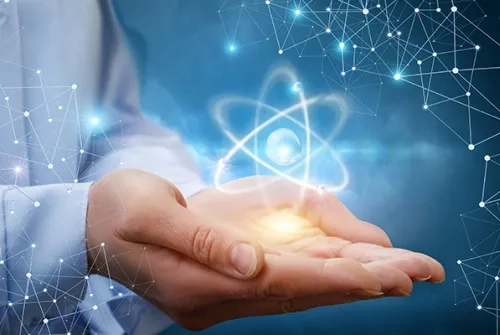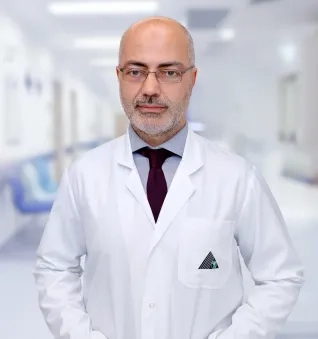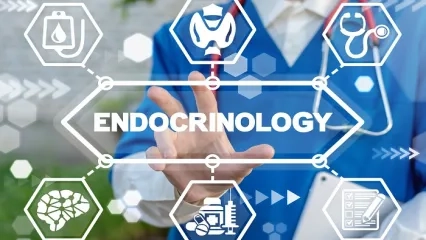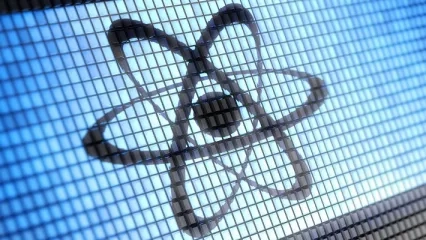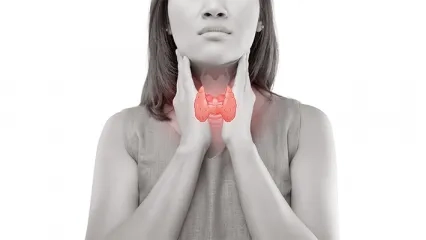Alo Yeditepe
Alo Yeditepe
Atomic Therapy (Radioactive Iodine Therapy)
The process known as atomic therapy among the people is the administration of a radioactive iodine atom to the patient. This process is done for two purposes:
- In patients who have undergone surgery for thyroid cancer, if the tumor is large in diameter or if the tumor has protruded beyond the thyroid gland, atomic therapy is applied to the patient after the surgery. It should be well understood that not every cancer patient is given atomic therapy. Atomic therapy is applied only in advanced-stage cases.
- Atomic therapy can be applied in patients with overactive thyroid gland. In this case, the dose administered to the patient is much lower than in cancer treatment. Since radioactive atoms that emit harmful rays to the environment are used in atomic therapy, patients should stay alone in a room for at least one day. The purpose of this is to protect other people from the effects of the rays.
What Are the Rules to be Followed While Receiving Atomic Therapy?
After the thyroid surgery, the thyroid hormone drugs prescribed by the doctor are discontinued and the TSH hormone level in the blood is expected to rise to around 30. This is a process that will often take a week or two. In the first 24 hours after the TSH hormone level in the blood rises above 30 and the radioactive iodine pill is swallowed, most of the radiation in the body is excreted through the urine. Therefore, it is recommended that the patient drink plenty of water during this period. When patients need to go to the toilet, they should not hold urine and go to the toilet immediately. Thus, less radiation remains in the body. Since radiation is also retained in the salivary glands, suggestions are also made to increase saliva secretion, such as eating lemons and chewing gum. Since radioactive iodine is excreted through sweat, it is beneficial for patients to take a hot shower.
In Which Department and Under Which Conditions Is Atomic Therapy Given?
Atomic therapy is applied by Nuclear Medicine Specialists in nuclear medicine departments, in special rooms prepared according to the rules determined by the Turkish Atomic Energy Agency.
How Is the Dose to Be Given to the Patient Determined?
Since the type of surgery, cell structure, tumor type, amount of hormone in the blood, and susceptibility of thyroid cells to iodine are not the same for each patient, the number of atoms they will receive is not the same. In advanced clinics, individual dose adjustments are made with special physical calculations called the dosimetric method, which is also used in our clinic.
How to Tell if the Treatment Is Successful?
The efficacy and success of the treatment can be safely evaluated with some blood tests (for example, thyroglobulin) and imaging with low-dose radioactive iodine. As in our clinic, an endocrine science council should decide whether this evaluation should be done with blood analysis alone or with imaging together with blood analysis.
Are There Any Side Effects of Atomic Therapy?
Contrary to popular belief, atomic therapy is not a treatment to be feared. It is very easy to apply, and the treatment consists of just swallowing a pill. It has no serious side effects. The most common side effect is dry mouth.
Is Atomic Therapy a Targeted Therapy and Can It Be Called Smart Drug?
Atomic therapy is targeted therapy. Radioactive iodine finds thyroid cells in the body and is absorbed by these cells. The cell that absorbs the radioactive iodine dies, so the purpose is fulfilled. In conclusion, atomic therapy is a form of smart drug therapy.
Can Atomic Therapy Be Applied Multiple Times?
Atomic therapy can be reapplied if necessary. However, it would be beneficial for an endocrine council to make this decision, as in our clinic.
Is There a High Radiation Exposure During Atomic Therapy?
During atomic therapy, only the area where the thyroid gland is removed and cancer cells (if left in the body) are exposed to high radiation. In this respect, radioactive iodine acts like a smart drug, protecting the rest of the body by giving high radiation only to the necessary points.
Is It Prohibited to Contact People After Receiving Atomic Therapy?
There is a certain contact restriction after atomic treatment. The purpose of this is to protect people who come into contact with the patient, that is, to prevent them from receiving unnecessary radiation. For this reason, patients often stay in the hospital for a day and are then sent home. The patient can share the same living room and the same dining table with the household for 7-8 days, but closer contact than 1m is not recommended. After this period passes, no restrictions are required.
Should I Throw Away the Clothes I Have Used During and After the Treatment?
There is no need for it. It is sufficient to wash your clothes and linens separately from the clothes of the household and without keeping them in the wash basket.
When Can I Return to Work After Atomic Therapy?
Patients should not return to work for at least 2 days after treatment. If there is close contact with other people (especially pregnant women), this period should be extended further. Your doctor will decide the period to be considered for returning to work.
Are Atomic Therapy and Radiotherapy the Same Thing?
These two are completely different things. In radiotherapy, radiation waves are given to the body with special devices, like tomography or MRI. In atomic therapy, the substance that emits radiation is given orally in pill form. The range of the rays given in radiotherapy is large and the surrounding tissues are also irradiated. However, in atomic therapy, only the relevant tissues are irradiated with small-range radiation.
Can Atomic Therapy Be Applied When Thyroid Gland Is Overactive (Hyperthyroidism)?
Atomic therapy can be applied not only in cancer patients but also in patients with overactive thyroid glands. However, this decision should be made by a specialist physician.
Does Atomic Therapy Cause Eye Disease?
Atomic therapy may rarely cause enlargement of the eyes (exophthalmos).
When to Become Pregnant After Atomic Therapy?
It is generally safe to become pregnant 6 months after treatment, although this may vary depending on the dose administered and the extent of the disease. Exact information will be given by the physician.
This content was prepared by Yeditepe University Hospitals Medical Editorial Board.
”
See Also
- What is a Parathyroid Adenoma? Symptoms and Treatment
- What is Calcitonin Hormone? Calcitonin Hormone Deficiency
- Radioembolization in Liver Tumor Treatment
- If the Size of the Thyroid Nodule is Over 4 cm, Be Cautious!
- How Does High Calcium in Blood Cause Complaints?
- A First in the Literature: Parathyroid Cell Obtained from Thyroid Stem Cell
- Diagnosis in Thyroid Diseases
- Assessment of Hyperthyroidism
- Hashimoto's Thyroid Disease
- Thyroid Tumor (Cancer)
- Graves' Disease
- Thyroid Nodules
- Thyroid Surgery
- Assessment of Hypothyroidism
- What is the Harm of High Calcium in the Blood?
- Frequently Asked Questions in Thyroid Diseases
- Diagnosis of Heart and Brain Diseases with PET CT
- Therapies Applied in Nuclear Medicine
- Theragnostic Approach in Cancer Treatment
- Nuclear Medicine Diagnosis and Imaging
- Which Thyroid Nodule Can Be Treated Without Surgery?
- She Was Relieved of Her Pain When the Missing Parathyroid Gland Was Found in The Chest Cavity
- Thyroid Storm Can Turn Life Upside Down
- Recovered From Thyroid Nodule with Needle Melting Method
- Stress Triggers Thyroid Diseases; These Occupations Are At Risk!
- Turkish Physician Developed a Novel Method for Parathyroid Transplant
- What Should Be Considered After Parathyroid Surgery?
- Parathyroid Diseases and Treatment
- They Said It Was Thyroid Cancer, But It Turned Out to Be Parathyroid Adenoma!
- The Frequency of Thyroid Nodules and Thyroid Cancer in Young People is Increasing!
- Thyroid Cancer Treatment Is Possible Without Removing The Entire Thyroid Gland
- Thyroid Storm
- T4 Hormone in 13 Headings
- Questions About Thyroid Diseases
- Thyroid Diseases
- Goiter (Thyroid Gland) Biopsy
- Radiofrequency Therapy in Thyroid Nodules
- What Is Autoimmune Hypoparathyroidism or Hypocalcemia?
- What Is The Loss of Low Calcium Level in Blood?
- What Is The Symptoms of Calcium Level Elevation (Hypercalcemia)?
- How It Is Made The Parathyroid Adenoma Operation?
- What Is Parathyroid Hyperplasia?
- Parathyroid Tumors
- What Are The Parathyroid Glands?
- Molecular Imaging and Treatment in Prostate Cancer
- Lutetium Treatment in Neuroendocrine Tumors
- Targeted Atomic Therapy is Hope for Many Cancers
- The Incidence of Thyroid Cancer Has Increased! There is Turkey in the Research!
- Key Surgery Performed In Turkish Hospital For First Time
Alo Yeditepe

